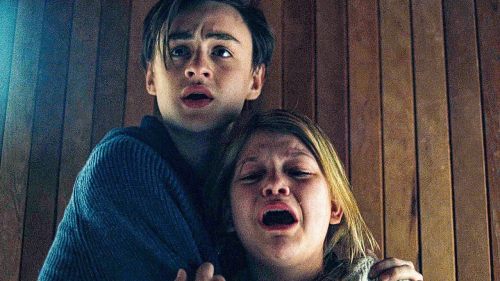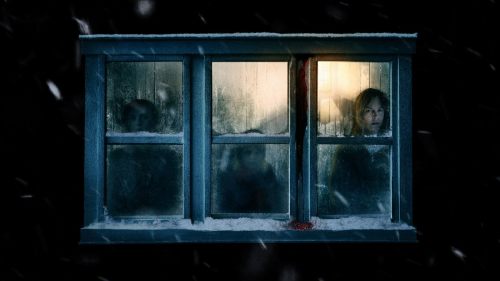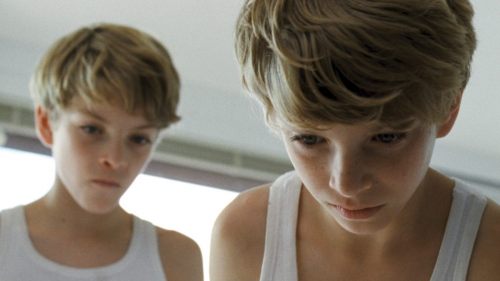Beyond Cher: The Later Roles Of Alicia Silverstone
The Lodge is almost here. Get your tickets now!
One of the sadder realities of Hollywood for the female actor is the inevitable career trajectory into the gilded prison of maternal roles. Hit a certain age and the put-upon mother, the doting granny, and “hopeless spinster” are about the best you can do for work. Worse yet, the competition for these parts can be significant. Not everyone can be Helen Mirren camping it up in the Fast Saga or blowing things up in the Red movies.Yesterday’s talked-about ingenue becomes today’s chattering hen. Linda Cardellini has carved out a strong career as a character actor in edgy television like Bloodline and Dead to Me, but her movie career mostly involves looking befuddled or sad as the “loyal wife” in the MCU and the Daddy’s Home films. Zooey Deschanel hasn’t acted in a live action movie since 2015. Surprisingly, it’s Alicia Silverstone who’s subverted this path in one of the more interesting late career reinventions of the last few decades.
Whether it’s thanks to a tenacious PR team or through genuine interest, audiences have been told to prepare for an Alicia Silverstone comeback numerous times since she first captured the zeitgeist in 1995’s Clueless. Amy Heckerling’s updating of Jane Austen’s novel has become a classic in its own right, spawning a TV spinoff, revival screenings, and persistent chatter of a reboot or sequel. But in that time, we haven’t gotten that Silverstone comeback. There have been fits and starts and moments of brilliance, to be sure, but seriously, maybe, for real, this is the moment. Thanks to a pivotal supporting role in Veronika Franz and Severin Fiala’s horror film The Lodge, we might finally get to see Silverstone shake the vestiges of Cher Horowitz for good.
On the heels of Clueless, Silverstone earned one of the most lucrative feature film talent contracts ever given to someone not yet old enough to order an alcoholic beverage. Columbia Pictures gave her $10 million and helped her set up her own production shingle, First Kiss, which made only one film: Excess Baggage, directed by Marco Brambilla and co-starring Benicio Del Toro. The film, about a bored rich girl who stages her own kidnapping, was a departure from the sunny teen comedy that made Silverstone a megastar. Around this same time, she was fifth on the call sheet for the abysmal Batman & Robin and suffered some of the most heinous media coverage for a celebrity that did nothing to deserve it. Almost immediately, publications like the New York Daily News and Entertainment Weekly spread rumors of Silverstone being in over her head. Worse than that was the unapologetic shaming of her weight, most notably at the 1996 Academy Awards, where she was a presenter. Media even went so far as to dub her “Fatgirl” over her perceived unattractiveness.
It shouldn’t be surprising to find out that Silverstone only top-lined one more studio film in her career, 1999’s Blast from the Past, which has gone on to a bit of cult esteem in the subsequent years. Silverstone left the industry for a time, then pivoted to television for much of the 2000s without finding a project that suited her blend of sharp comedic timing and relentless good cheer. Maybe her most memorable role in the 2000s was as Elaine in the stage adaptation of The Graduate. She could be guileless and vulnerable in a darkly comedic setting. But eventually, everyone ages out of Elaine and into Mrs. Robinson.
One of Silverstone’s most underrated performances of that period was 2005’s Beauty Shop, the Queen Latifah-fronted spinoff of the Barbershop franchise. Silverstone played Lynn, another one of her patented ditzy roles, but with the added twist of a Southern accent. Not many people revisit Beauty Shop, an unfulfilled attempt at brand extension, but it’s worth it for Silverstone proving she can step outside of our narrow expectations of her on-screen. In a profile for the Chicago Tribune, she says she could relate to the character of Lynn—the only major white character in a primarily African-American film—thanks to her childhood as a perpetual outsider living for months at a time in Europe.
Silverstone was an outsider in Hollywood, too. Not because of her race or her nationality, but because she was a child in a world dominated by savvy, ruthless adults who had no problem cutting her down for their own purposes. The studios let her in, but when she got there, it was as though the entire town was ready to kick her right back out as soon as possible. It’s counterintuitive to think of someone who fits the traditional, heteronormative cultural beauty standard to such an obvious degree as an outsider, but that’s part of what makes her so compelling. Vulnerability is the most relatable human trait. We’re all far more raw and damaged than we let on. Studio bosses of the 1990s might have felt that Silverstone’s only redeeming quality as a movie star was her sex appeal, but that reeks of ignorance, sexism, and myopia. What makes our movie stars last is their ability to communicate our hopes, dreams, and darkest fears so we don’t have to.
What Silverstone taps into isn’t just simple naivete, but the knowledge that you don’t quite fit combined with a relentless optimism that one day, you can. That was who Cher Horowitz was by the end of Clueless. Cher knew she was too self-absorbed to comfortably navigate the adult world, but instead of retreating inward, she tries to grow as a human being; not just because she loves Josh, but because she has a humanity that even being fabulously wealthy couldn’t snuff out. In her early roles in trashy erotic thrillers like The Babysitter and The Crush, this innocence was repeatedly perverted for the sake of titillation, but Clueless let her use that power for something more.
If you want to gender that concept, you could call it maternal. Unfortunately, that’s what pop culture tends to do. It perceives vulnerability as a feminine quality rather than a universal truth about being alive. Silverstone makes the most of this in challenging, if small roles as mothers in Yorgos Lanthimos’s The Killing of a Sacred Deer and The Lodge. In Killing of a Sacred Deer, Silverstone plays the mother of Martin (Barry Keoghan), the malevolent child who seeks to exact revenge on the doctor who let his father die. Her perceived purity contrasts with the darkness of Martin and her own bizarre choice to attempt to seduce the doctor, Steven (Colin Ferrell). Her role in The Lodge is that of an idealized matriarch replaced by a younger, more unstable step-mom (Riley Keough). Instead of the puerile lusting of her earliest roles, she’s the stand-in for a collective nostalgic yearning for a thing we barely understood.
Besides Silverstone, Killing of a Sacred Deer and The Lodge share cinematographer Thimios Bakatakis’s icy bleakness and a sense of a family unit rotting from the inside; the system itself being inhospitable to our inescapable frailties. Silverstone is the line underneath the point, contrasting the trauma with that brightness she personifies. Beatifying a woman like this comes with its own problems, as the angelic perfection of a female character tends to replace any sort of realistic interior life. But both Killing of a Sacred Deer and The Lodge subvert that expectation in their own, spoilery ways.
That might be the best Silverstone can hope for, to circumvent the cliches of the typical female roles. That’s not a consolation prize, though. When her career is over, hopefully we’ll remember Alicia Silverstone for her work and not whether or not she could fit into a Bat-suit.



